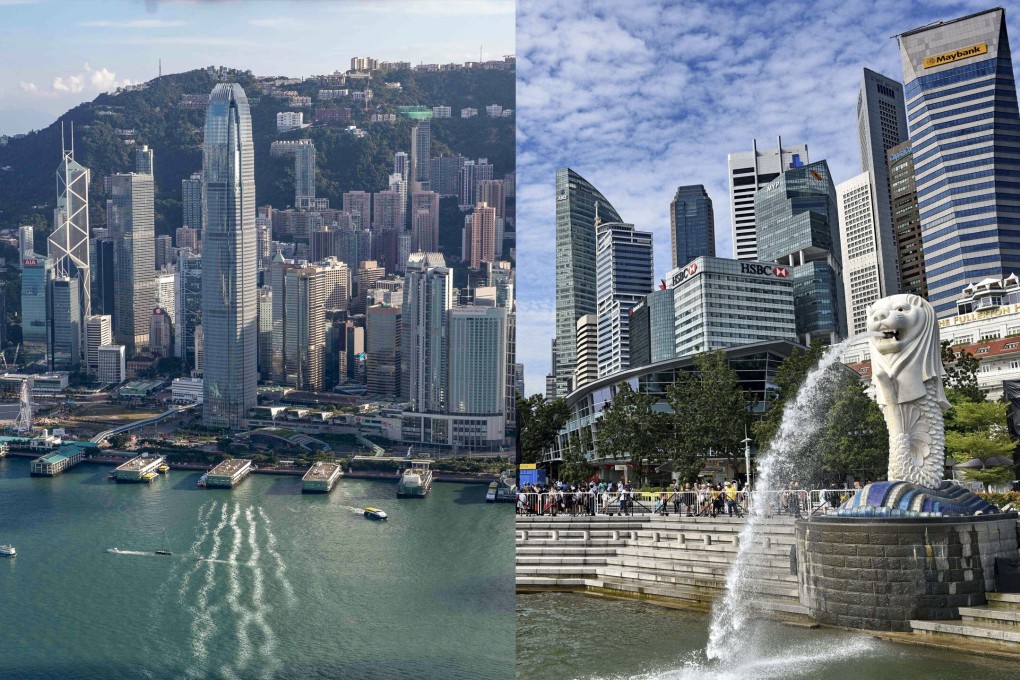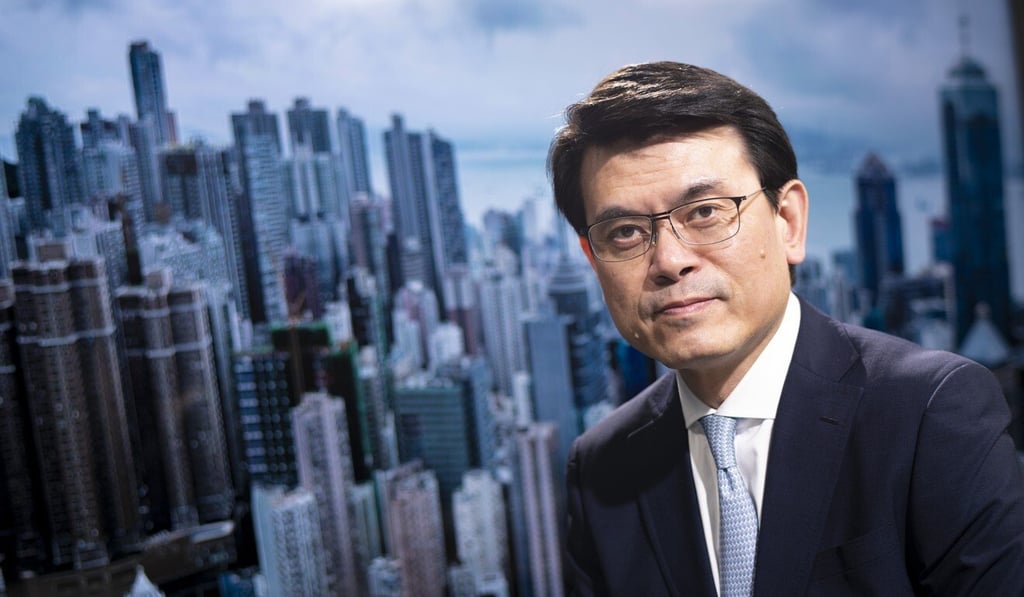Coronavirus: Hong Kong-Singapore travel bubble to launch as scheduled this month despite recent cases, commerce minister says
- Current infections ‘well below’ threshold that would trigger a pause in quarantine-plan, Edward Yau says as city confirms one local, one imported case on Wednesday
- But Singapore has recently seen a sharp uptick in infections after months with none, including a cluster at its airport and a large hospital

Secretary for Commerce and Economic Development Edward Yau Tang-wah offered the reassurance as Hong Kong confirmed two new Covid-19 cases on Wednesday.
One involved a domestic helper arriving from the Philippines and the other a 42-year-old man linked to a local cluster of variant infections connected to a 30-year-old engineer from Dubai. New research however suggests the engineer contracted the mutated virus from a person staying in an adjacent hotel room during quarantine.
Remaining optimistic for the travel bubble launch, Yau said the city’s seven-day moving average of unlinked local cases was lower than one, while Singapore’s was between 1.6 and 1.8.
“The numbers are well below the established threshold to trigger a pause in the bubble. We will closely monitor if the situation gets worse,” Yau told reporters following a Legislative Council session.
